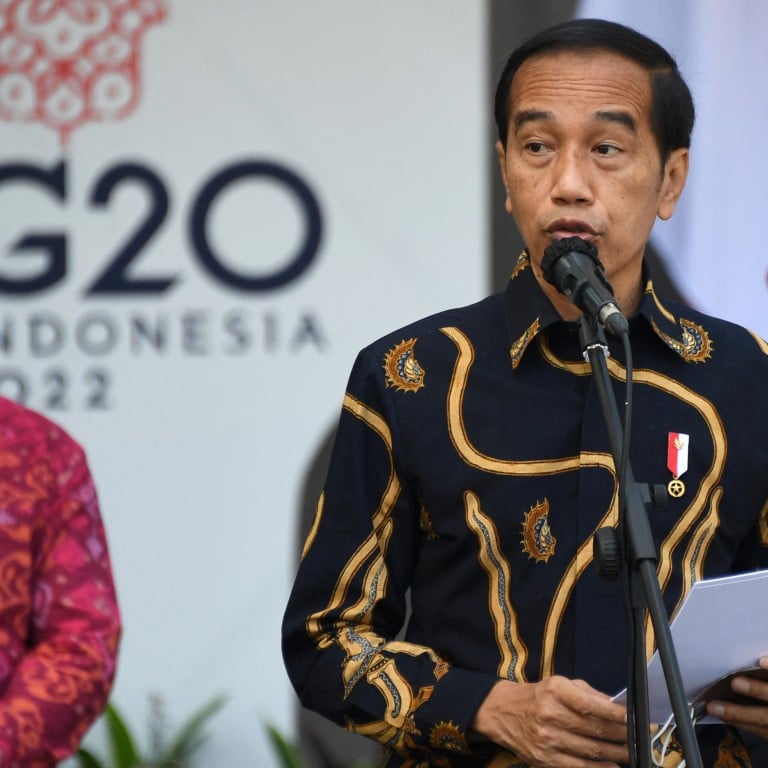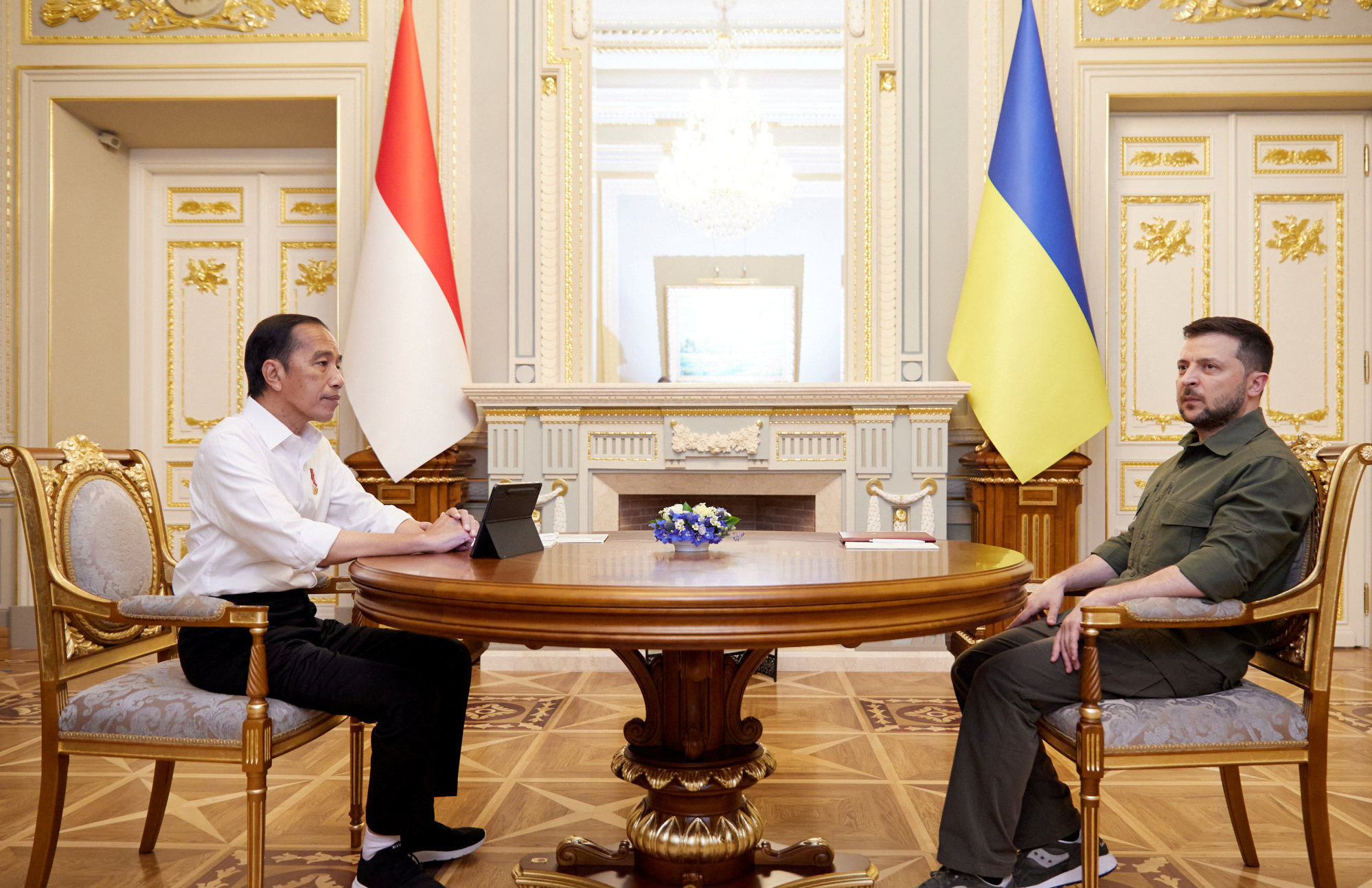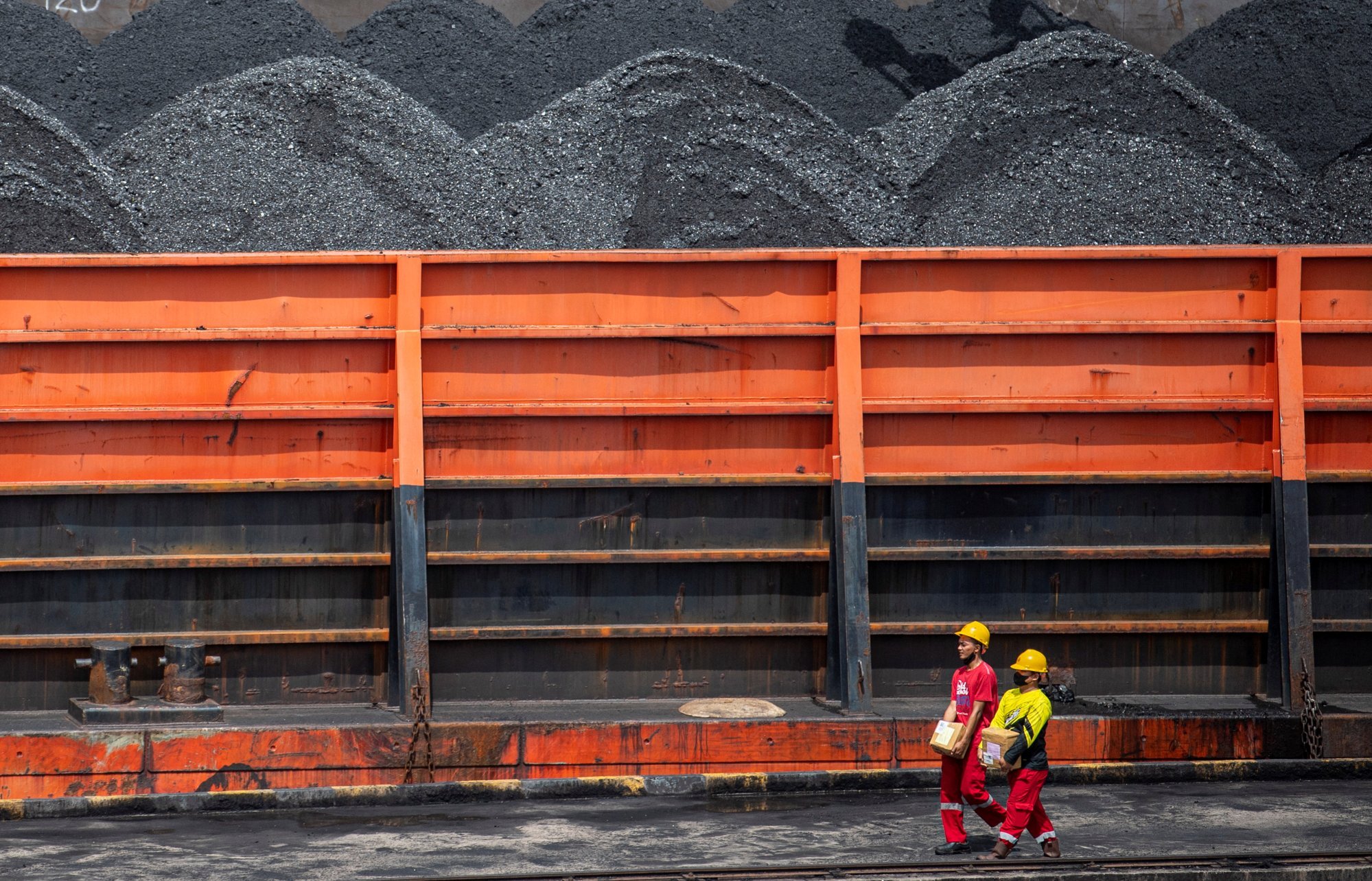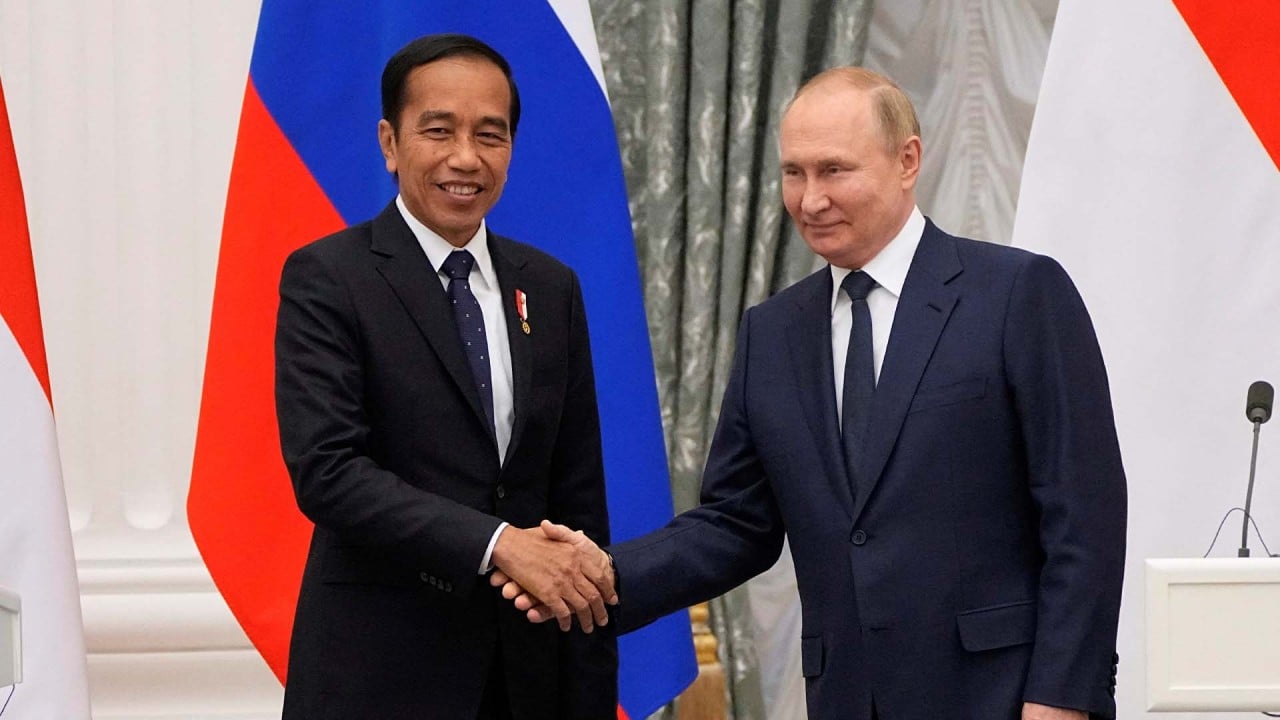
Amid global divisions, Indonesia faces a daunting task to achieve G20 consensus
- November’s meeting in Bali will be attended by world leaders increasingly at odds with one another amid rising geopolitical tensions
- First-time host Indonesia has a chance to position itself as a champion of diplomacy and consensus building
Strengthening cooperation between the world’s major established economies and emerging economies is the G20’s main goal this year. Specialised task forces are working to identify gaps in recovery from the Covid-19 crisis, and promote inclusive and sustainable growth in G20 countries and beyond.
Intent on diversifying the image of the G20, Widodo wants Indonesia’s turn at the helm to benefit vulnerable populations, small island nations and developing economies, in addition to G20 members. A high priority is being given to aiding underdeveloped nations in Asia, Africa and South America, as well as the small island states in the Pacific and Caribbean.
China has so far refused to condemn the Russian invasion, abstaining from voting on the Ukraine issue on a number of occasions at the United Nations, and maintaining a “no limits” friendship with Moscow.

The conflict between Ukraine and Russia has already had an effect on the global economy, complicating G20 agenda items like energy security and prices, food security and global supply chains, financial markets and inflationary pressures. Progress on these issues and others is now being held hostage by the G20’s lack of cohesion.
As the G20 leadership summit is preceded by the COP27 climate conference in Egypt, Indonesia needs to demonstrate smart climate diplomacy to address disparities in G20 states’ economies, levels of expertise, and societal expectations with relation to a green energy transition.
Indonesia is the world’s eighth-largest carbon emitter. In comparison to other G20 countries, its renewable energy sector is small, making it difficult to lead by example on this issue.

No less than the future of humanity is at risk because of crises like the Ukraine war, energy insecurity, inflation, climate change, biodiversity loss, and the multipronged challenges facing developing nations.
Entering the post-pandemic era, G20 nations must work together to build a more responsive global health architecture, transition to renewable energy sources, create inclusive financial systems and bridge the global digital divide.
In a world marred by war and still reeling from the longest pandemic in living memory, setting common agendas and attainable action plans will be a challenge for Indonesia.
At the same time, however, November’s summit gives the Southeast Asian country a unique opportunity to demonstrate global leadership and advocate for unity at a time when division and disconnect are becoming the norm rather than the exception.
Professor Syed Munir Khasru is chairman of the international think tank IPAG Asia-Pacific, Australia, with a presence also in Dhaka, Delhi, Dubai, and Vienna


